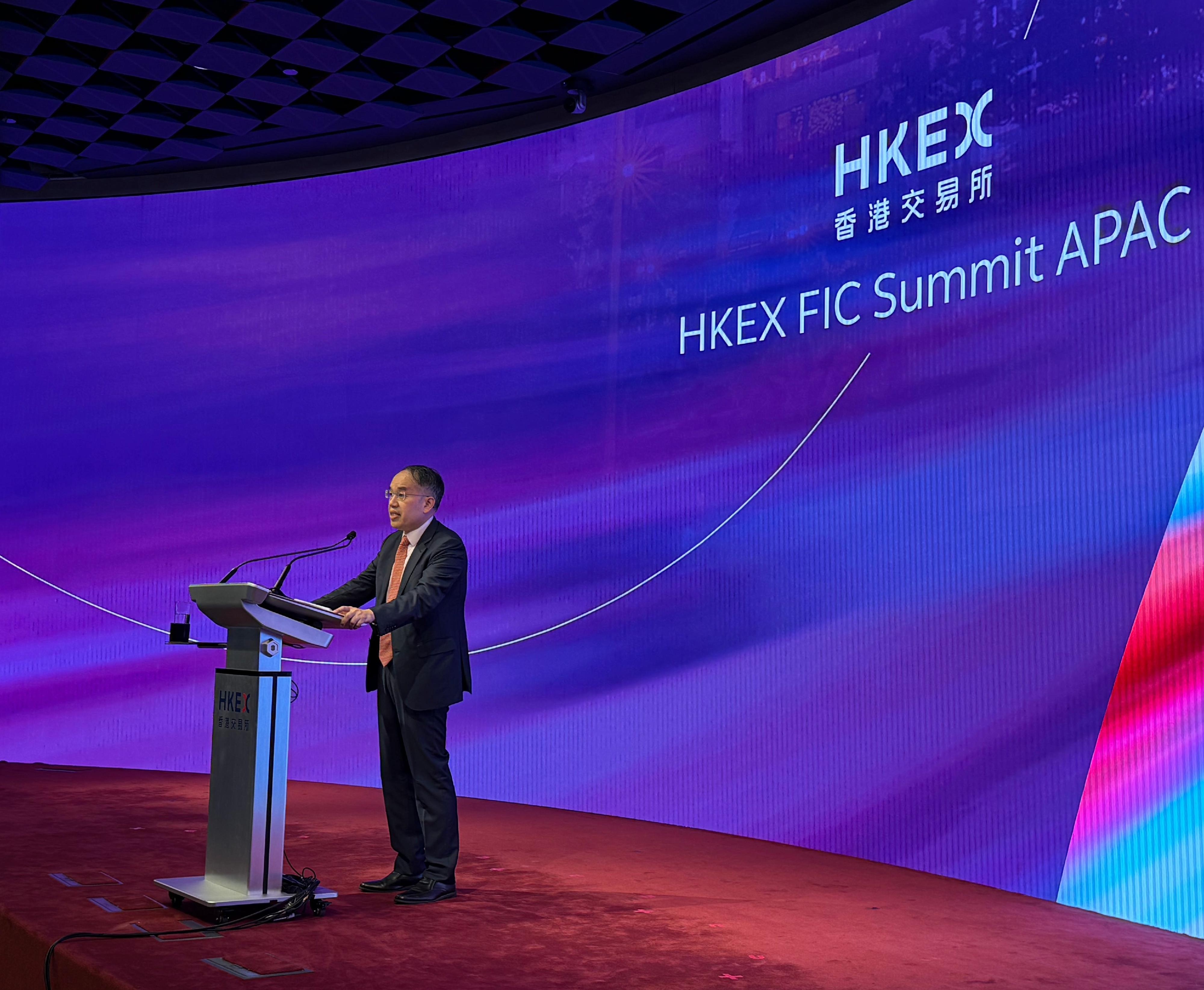
As a financial conduit for renminbi transactions, Hong Kong can attract global capital and create win-win scenarios that benefit all parties involved, Secretary for Financial Services and the Treasury Christopher Hui Ching-yu said.
Addressing those attending the HKEX FIC Summit APAC 2024 on Tuesday, the financial services chief said that the renminbi is increasingly important in international trade, investment and cross-border transactions, with the Chinese mainland being the second-largest economy in the world.
“As Hong Kong is the world's leading offshore renminbi business center and has the largest offshore renminbi capital pool, the city strives to create a diversified ecosystem and enhance the global status of the Chinese currency,” Hui said, adding that Hong Kong’s unique position in the development of the Guangdong-Hong Kong-Macao Greater Bay Area will also facilitate the currency’s internationalization.
He said he believes that the interconnection of the bond and derivative market established by Bond Connect and Swap Connect not only meets the diversified risk management needs of domestic and foreign investors, but can also serve as a catalyst for renminbi internationalization.
ALSO READ: Yue: HK to boost offshore yuan financing with better liquidity, products
Hui said that, besides fortifying the offshore renminbi financing business, the government of the Hong Kong Special Administrative Region is also hoping to transform Hong Kong into a premier fixed income and currency hub in the Asia-Pacific region.
“Integrating financial technology solutions into the fixed interest and currency markets will not only improve efficiency, but also attract a new generation of investors who are looking for innovative ways to engage with the market,” Hui said.
READ MORE: RMB, stocks rally amid stimulus
Bonnie Chan Yi-ting, CEO of Hong Kong Exchanges and Clearing, added: “As Hong Kong’s core financial market infrastructure, the Hong Kong Stock Exchange has always played a key role in expanding the use and application of the renminbi, such as facilitating global investors to use onshore bonds issued by the Ministry of Finance and mainland policy banks as margin collateral for transactions.”
“As renminbi internationalization continues to progress, the HKEX will continue to create different tools to seize opportunities and promote cross-border and offshore financial capital flows,” Chan said.
According to Chan, the volume of offshore RMB bond issuances has more than doubled compared with 2020. The market share of the internationalization of RMB foreign exchange transactions has climbed from less than 1 percent to 7 percent. As a reserve currency, the renminbi’s share has doubled since 2016.
READ MORE: HK share market boosted by mainland broad monetary easing
Based on SWIFT data, the renminbi was the fourth most active currency for global payments by value as of August this year, with its share rising to 4.7 percent.
“Since the renminbi accounts for less than 5 percent of global cross-border payments, the currency still has a lot of room for growth in a global economy full of uncertainty and volatility. The internationalization of the renminbi also provides important diversification opportunities for international investors,” Chan said.
Robin Xing, chief China economist at Morgan Stanley, said the development pace of the renminbi would increase when the country’s proportion of exports to economies that are friendly to the country, or which are neutral, increases further.


